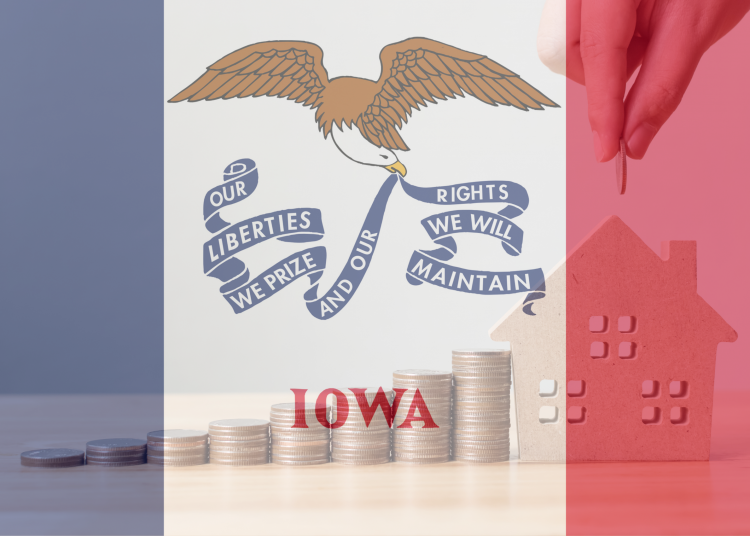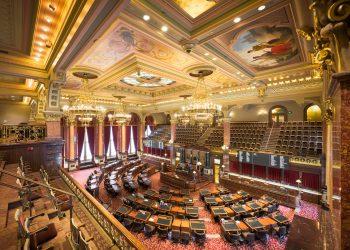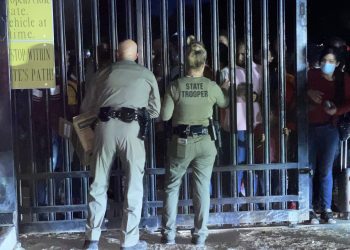Property taxes are a concern for taxpayers across the nation. Iowans, just as with many other states, are confronted with skyrocketing property taxes. The reason for high property taxes is local government spending. Spending drives taxes. This is the main reason why past property tax reforms in Iowa have failed to provide relief. Montana Representative Caleb Hinkle understands that spending is driving higher property tax bills. To remedy this solution he has introduced a local government spending limitation that will help slow the growth of local government spending and provide much needed property tax relief.
The Montana legislature is considering HB 324, which if enacted would place a cap on the growth of local government budgets. Specifically the spending limitation would limit the growth of budgets to the rate of population growth and inflation. The spending limitation formula would be based on the sum of the average inflation rate of the prior three years plus the average population growth rate of the local government for the prior three years. The rate of inflation would be calculated using CPI and population growth based on the most recent estimate provided by the United States Census Bureau.
The limitation would apply to expenditures from all available sources of revenue collected during the prior year, including federal funds, state funds, and grants, payments of principal and interest on bond indebtedness, and any grants, gifts, devises, or bequests made to the local government. Further, local governments could exceed the limit if the Governor declares or renews a declaration of emergency or disaster. In addition, local governments could also pass a resolution and submit to the people a vote to supersede the limit. If a majority of voters approve the local government can spend more. Finally, any revenue collected in excess of the spending limit must be subtracted from the total amount of revenue authorized to be raised by property taxes.
This spending limitation gets at the heart of the property tax problem. Limiting spending to the growth of population plus inflation is just one possibility to consider. Another possible option would create a spending limit that would allow local government budgets to grow only by a certain flat percentage and then if they want to exceed the limit it would require a vote of the people.
In a previous session of the Iowa Legislature, State Senator Brad Zaun, R-Urbandale, introduced a local government spending limitation that would cap local budget growth. In part, the bill (SF 2104) would reform the 2019 property tax transparency and accountability law to lower the current two percent budget soft cap to one percent and require the increase to be approved by voters during election, in which 60 percent approval would be need in order to exceed the limit.
James Hohman, Director of Fiscal Policy at the Mackinac Center for Public Policy, argues that limitations “ensure popular control of local government.” Tax and spending limitations serve as essential taxpayer protections. “Limits also give residents an important responsibility: to ensure that their government functions appropriately within them,” notes Hohman.
Economist Daniel Mitchell describes spending limits as similar to speed limits in a school zone, both are designed to protect. In the case of local governments, they apply the brakes to slow spending down.
In referring to the Montana legislation, Kendall Cotton, President of the Frontier Institute, stated that the spending limit would “help keep the cost of government within the bounds of what average taxpayers can reasonably afford and make room for property tax relief.”
Recent polling by Iowans for Tax Relief Foundation found not only that a majority of Iowans demand property tax relief, but 56 percent would support a spending limitation applied to local governments.
“While Montanans are tightening their belts amid skyrocketing property taxes, inflation and increased cost of living, many of our local governments are continuing a spending spree,” stated Cotton. Iowans are confronted with the same economic reality and Cotton has correctly diagnosed the problem.
Iowa policymakers should seriously consider a local government spending limitation to cap the growth of budgets and finally deliver property tax relief for taxpayers.
















